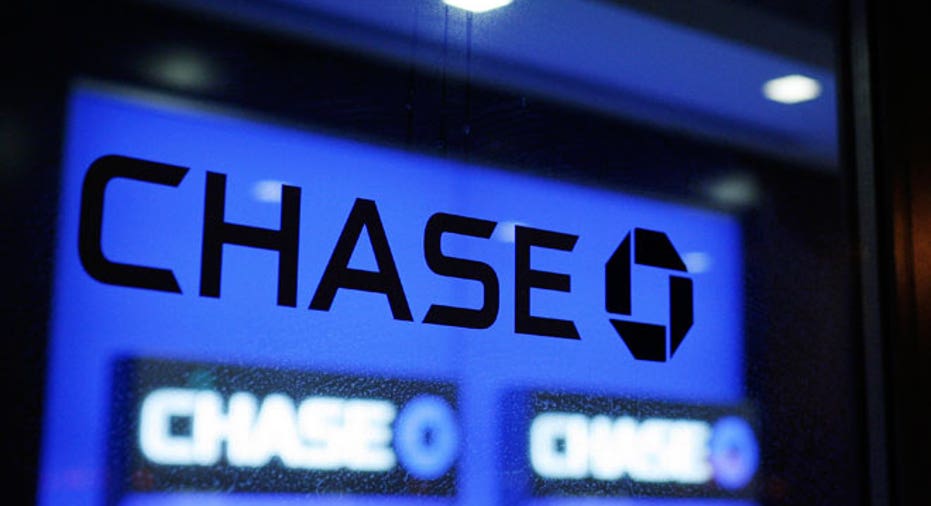Drew Dodges Blame for 'London Whale' Debacle

Ina Drew, the former JPMorgan Chase & Co executive in charge of the unit that made the disastrous "London Whale" trades that became public last year, told lawmakers on Friday that she does not bear personal responsibility for the $6 billion in losses.
Instead, she blamed others for deceiving her, including her direct reports - Achilles Macris, who supervised the trading book at issue, and Javier Martin-Artajo, who managed it on a day-to-day basis.
Those employees did not appear at the hearing before the Senate Permanent Subcommittee on Investigations, and did not participate in the panel's probe. They are based in London and are not subject to the U.S. Senate's subpoena power.
"Some members of the London team failed to value positions properly and in good faith, minimized reported and projected losses, and hid from me important information regarding the true risks of the book," said Drew, the bank's former chief investment officer, in her first public comments on the matter.
She defended her oversight as "reasonable and diligent" and said she believed she didn't hold personal responsibility for the losses. "Clearly mistakes were made," she said.
The comments from Drew, who spoke softly but firmly about her role in the debacle, came early in Friday's hearing into the losing derivatives bets that came to be known as the "London Whale" trades.
The Senate panel released on Thursday a report that alleged the bank ignored risks, misled investors, fought with regulators and tried to work around rules as it dealt with mushrooming losses in that portfolio.
The report blamed Drew and other senior managers for doing little to rein in the risky trading as danger signs emerged in early 2012.
On Friday, Senator John McCain from Arizona, the top Republican on the panel, questioned why Drew and others were transferring blame. "It seemed that the traders seemed to have more responsibility and authority than the higher-up executives," McCain said.
LINGERING TEMPEST
JPMorgan Chief Executive Jamie Dimon initially dismissed rumors of a troubled trading position as a "tempest in a teapot" during an April 2012 conference call.
Less than a month later, the bank disclosed serious problems with the trading strategy, and later said it lost $6.2 billion from the trades.
Dimon, who has testified publicly twice before about the Whale trades, was not invited to appear on Friday. Instead, the panel pressed Drew and other former managers.
Senator Carl Levin, the Democrat from Michigan who heads the subcommittee, asked Peter Weiland, the former head of market risk in Drew's office, about why he dismissed a key risk measure that warned of potentially blooming losses in the synthetic credit portfolio.
The metric predicted that the portfolio could produce a yearly loss of $6.3 billion, which Weiland rejected as "garbage" in February 2012. He said on Friday that, in hindsight, the measure did not appear so far off.
"The whale trades demonstrate how credit derivatives, when purchased in massive quantities with complex components, can become a runaway train barreling through every risk limit," Levin said.
SHIFTING BLAME
Other JPMorgan executives described the losses as a terrible mistake, and said the bank had largely fixed the problems that led to them.
Levin asked a series of questions about misstatements by JPMorgan that he had identified in the report, but the executives provided little in the way of new admissions.
The bank's current vice chairman, Douglas Braunstein, blamed outside counsel and auditors at PricewaterhouseCoopers for signing off on the shift from valuing the positions at the middle of the range to an extreme that made the positions look better. But he said the bank felt it could justify the inflated marks based on the volatility of the market.
A representative from PwC did not immediately respond to a request for comment.
The largest U.S. bank has long been seen as the safest and best-managed in the country, but the subcommittee's report could taint its reputation as well as that of CEO Dimon.
The report also gives ammunition to advocates calling for stricter financial reforms, including to regulators crafting the Volcker rule, which proposes to put limits on banks betting with their own funds.
"If derivatives books can be cooked as blatantly as they are in this case without breaking the rules, then the rules need to be revamped," Levin said.



















